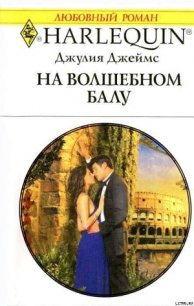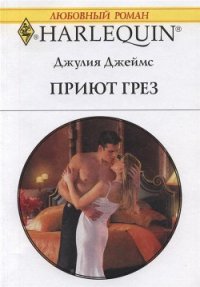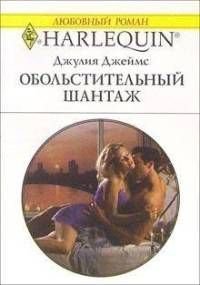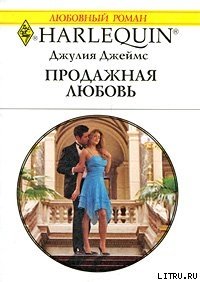Julia Ward Howe - Richards Laura E. (бесплатная регистрация книга TXT) 📗
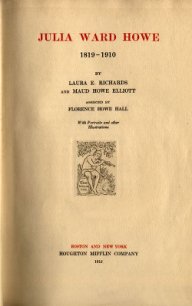
Жалоба
Напишите нам, и мы в срочном порядке примем меры.
Julia Ward Howe - Richards Laura E. (бесплатная регистрация книга TXT) 📗 краткое содержание
Thomas Wentworth Higginson said of Julia Ward Howe’s Reminiscences, published in 1899, that the work might have been “spread out into three or four interesting octavos; but in her hurried grasp it is squeezed into one volume, where groups of delightful interviews with heroes at home and abroad are crowded into some single sentence.” Mrs. Howe’s life-story, as told by her daughters, certainly does not err on the side of brevity or want of detail. Yet in the numerous extracts from letters or private journal which make up the bulk of the two volumes, there is something of the same effect of which Colonel Higginson complained – the effect of much material somewhat hurriedly squeezed into a little space. There is a superabundance of experience, a superabundance of ideas; the expression of thoughts has to be abbeviated; mere intimations have to suffice. One is continually under the impression that the writer would have said more if she had time, and one is certain, too, that the more would have been worth reading.
As a biography, this life of Mrs. Howe is a little dissatisfying, in two particulars. There is, first, the effect of hurry and compression just spoken of. Scattered through the letters and journals there are, to be sure, many notable sayings – sayings shrewd or witty. But on the whole the effect of hurry and incompleteness is rather prevalent. Then, too, there is, from the point of view of readableness and continuity of interest, rather too much than too little detail in the two volumes of the Life. This is only to say that the work has somehow failed to develop that unity and that almost epic quality which distinguish the greatest biographies. Nevertheless one would hardly say that there is anything in the Life that one would wish away, and it may be said that the book splendidly achieves its main purpose: it portrays a great character with lively truth and with something like completeness. Admirers of Mrs. Howe would hardly been satisfied with a record less full; that the record for all its fulness of detail seems seldom quite fully expressive is the fault.
Rich and varied as are the experiences related in this story of merely of circumstances and of human limitations.
Mrs. Ward’s life, interesting as are the notes of work and travel, and study, and fun, and social interchange, in which the narrative abounds, the biography of Mrs. Howe is not one of those which will be read chiefly, or in any large degree, for its connected accounts of events or movements, or for its anecdotes of people. In this history of a life too active to permit of studied and careful record, the effect of character is dominant; and this effect is one that has to be gathered as the final impression of a composite whole – a blending of saintliness and “friskiness”, the steady love of virtue and the recurrent fondness for jewels; the deep intellectual interests and the capacity for joyous nonsense. Entries like these jostle one another upon the same page of Mrs. Howe’s journal:
“Kant’s Anthropologia is rather trifling after his great works. I read it to find out what Anthropology is.”
* * * * * *
“Good is a direction; virtue a habit.”
* * * * * *
“Wearied by endless running about to find help for my charade, – having disappointed me. Determine to undertake nothing more of the kind.”
It is impossible in a limited space to speak justly and adequately of all the elements of interest which enter into Mrs. Howe’s life story. There is, however, a dominant impression, which may be set down. William Jones once made the suggestive remark that in all probability we all have powers of the existence of which we are commonly unaware, and which we seldom or never use. The thought that human personality is less limited than is ordinary supposed, that it may draw upon secret sources of power, is fascinating and finds confirmation in experience. The life of Mrs. Howe seems an illustration of this thesis. Here is a woman, one continually feels, who has reached a higher state of consciousness than do most persons – her imagination, her sympathy, her faith, her intuition, reach out beyond the narrow bounds of personality, and hence there is more light and more power in her than one can quite account for or than is ever in words quite expressed. Of something of the sort she was herself no doubt conscious. Yet she was no mystic in the popular sense. “I do not desire ecstatic, disembodied sainthood,” she said, late in life, “because I do not wish to abdicate any one of the attributes of my humanity. I cherish even the infirmities that bind me to my kind. I would be human, and American, and a woman.”
Always in Mrs. Howe’s biography, the human element matches the spiritual element. There is an unusually acute consciousness of both, and an alternation between the two. In January, 1889, Mrs. Howe wrote in her journal: “In my prayer this night I asked for weight and earnestness of purpose. I am too frivolous and frisky.” Again at a much later date we read: “I did not dare to write to anyone yesterday, my head was so full of nonsense. Reaction, brain-fatigue takes this shape with me, and everything goes ‘higgle-wiggledy, hi-cockalorum,’ or words to that effect.” Short of pure sainthood, perfect tranquility is seldom anything but self-complacence, and it is not surprising to find that these alternations of mood from the exalted to the nonsensical, from the earnest to the “frivolous”, were accompanied by some measure of divine discontent. Certainly, there is no complaint or expression of dissatisfaction with life in these memoirs, yet one would hardly call their dominant note restfulness. Perhaps it is just this unrest, this consciousness of the dualism of life at a high level of mental and spiritual development, which gives to Mrs. Howe’s Life its fascination and its profound human appeal.
Julia Ward Howe читать онлайн бесплатно
The Project Gutenberg EBook of Julia Ward Howe, by
Laura E. Richards and Maud Howe Elliott
This eBook is for the use of anyone anywhere at no cost and with
almost no restrictions whatsoever. You may copy it, give it away or
re-use it under the terms of the Project Gutenberg License included
with this eBook or online at www.gutenberg.org
Title: Julia Ward Howe
1819-1910
Author: Laura E. Richards
Maud Howe Elliott
Release Date: January 23, 2012 [EBook #38648]
Language: English
*** START OF THIS PROJECT GUTENBERG EBOOK JULIA WARD HOWE ***
Produced by David Edwards, Julia Neufeld and the Online
Distributed Proofreading Team at http://www.pgdp.net (This
file was produced from images generously made available
by The Internet Archive)
JULIA WARD HOWE
1819-1910
VOLUME I

From a photograph by J. J. Hawes, about 1861
JULIA WARD HOWE
1819-1910
BY
LAURA E. RICHARDS
AND MAUD HOWE ELLIOTT
ASSISTED BY
FLORENCE HOWE HALL

TWO VOLUMES IN ONE
BOSTON AND NEW YORK
HOUGHTON MIFFLIN COMPANY
The Riverside Press Cambridge
COPYRIGHT, 1915, BY LAURA E. RICHARDS AND MAUD HOWE ELLIOTT
ALL RIGHTS RESERVED INCLUDING THE RIGHT TO REPRODUCE
THIS BOOK OR PARTS THEREOF IN ANY FORM
The Riverside Press
CAMBRIDGE-MASSACHUSETTS
PRINTED IN THE U.S.A.
TO
HENRY MARION HOWE
CONTENTS
I. ANCESTRAL. 3 II. LITTLE JULIA WARD. 1819-1835 15 III. "THE CORNER." 1835-1839 41 IV. GIRLHOOD. 1839-1843 56 V. TRAVEL. 1843-1844 79 VI. SOUTH BOSTON. 1844-1851 101 VII. "PASSION FLOWERS." 1852-1858 136 VIII. LITTLE SAMMY: THE CIVIL WAR. 1859-1863 173 IX. NO. 13 CHESTNUT STREET, BOSTON. 1864 194 X. THE WIDER OUTLOOK. 1865 213 XI. NO. 19 BOYLSTON PLACE: "LATER LYRICS." 1866 235 XII. GREECE AND OTHER LANDS. 1867 260 XIII. CONCERNING CLUBS. 1867-1871 283 XIV. THE PEACE CRUSADE. 1870-1872 299 XV. SANTO DOMINGO. 1872-1874 320 XVI. THE LAST OF GREEN PEACE. 1872-1876 339 XVII. THE WOMAN'S CAUSE. 1868-1910 358
JULIA WARD HOWE
CHAPTER I
ANCESTRAL
These are my people, quaint and ancient,
Gentlefolks with their prim old ways;
This, their leader come from England,
Governed a State in early days.
* * * * * *
I must vanish with my ancients,
But a golden web of love
Is around us and beneath us,
Binds us to our home above.
Julia Ward Howe.
Our mother was once present at a meeting where there was talk of ancestry and heredity. One of the speakers dwelt largely upon the sins of the fathers. He drew stern pictures of the vice, the barbarism, the heathenism of the "good old times," and ended by saying with emphasis that he felt himself "bowed down beneath the burden of the sins of his ancestors."
Our mother was on her feet in a flash.
"Mr. So-and-So," she said, "is bowed down by the sins of his ancestors. I wish to say that all my life I have been buoyed up and lifted on by the remembrance of the virtues of mine!"
These words are so characteristic of her, that in beginning the story of her life it seems proper to dwell at some length on the ancestors whose memory she cherished with such reverence.
The name of Ward occurs first on the roll of Battle Abbey: "Seven hundred and ten distinguished persons" accompanied William of Normandy to England, among them "Ward, one of the noble captains."
Her first known ancestor, John Ward, of Gloucester, England, sometime cavalry officer in Cromwell's army, came to this country after the Restoration and settled at Newport in Rhode Island. His son Thomas married Amy Smith, a granddaughter of Roger Williams. Thomas's son Richard became Governor of Rhode Island and had fourteen children, among them Samuel, who in turn became Governor of the Colony, and a member of the Continental Congress. He was the only Colonial governor who refused to take the oath to enforce the Stamp Act. In 1775, in the Continental Congress, he was made Chairman of the Committee of the Whole, which from 1774 to 1776 sat daily, working without intermission in the cause of independence. But though one of the framers of the "Declaration," he was not destined to be a "signer." John Adams says of him, "When he was seized with the smallpox he said that if his vote and voice were necessary to support the cause of his country, he should live; if not, he should die. He died, and the cause of his country was supported, but it lost one of its most sincere and punctual advocates."
